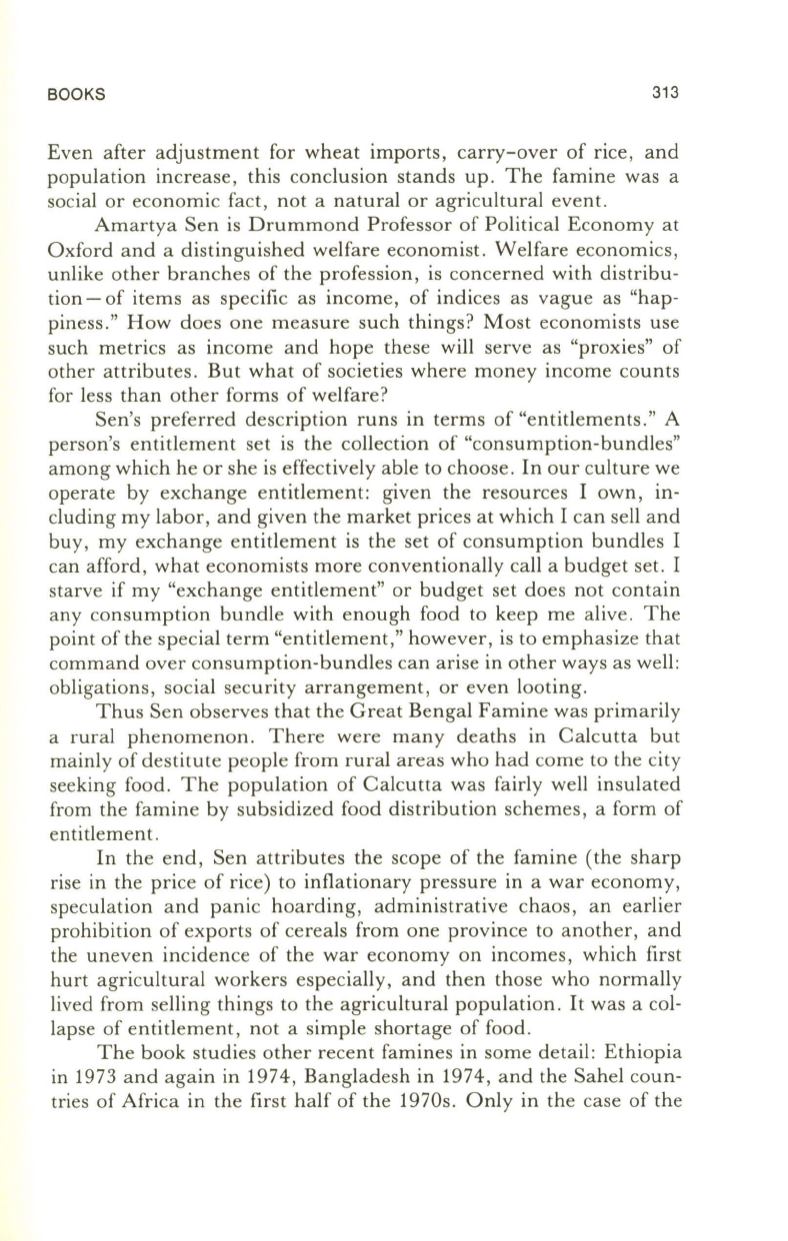
BOOKS
313
Even after adjustment for wheat imports, carry-over of rice, and
population increase, this conclusion stands up. The famine was a
social or economic fact, not a natural or agricultural event.
Amartya Sen is Drummond Professor of Political Economy at
Oxford and a distinguished welfare economist. Welfare economics,
unlike other branches of the profession, is concerned with distribu–
tion - of items as specific as income, of indices as vague as "hap–
piness." How does one measure such things? Most economists use
such metrics as income and hope these will serve as "proxies" of
other attributes. But what of societies where money income counts
for less than other forms of welfare?
Sen's preferred description runs in terms of "entitlements." A
person's entitlement set is the collection of "consumption-bundles"
among which he or she is effectively able to choose. In our culture we
operate by exchange entitlement: given the resources lawn, in–
cluding my labor, and given the market prices at which I can sell and
buy, my exchange entitlement is the set of consumption bundles I
can afford, what economists more conventionally call a budget set. I
starve if my "exchange entitlement" or budget set does not contain
any consumption bundle with enough food to keep me alive. The
point of the special term "entitlement," however, is to emphasize that
command over consumption-bundles can arise in other ways as well:
obligations, social security arrangement, or even looting.
Thus Sen observes that the Great Bengal Famine was primarily
a rural phenomenon. There were many deaths in Calcutta but
mainly of destitute people from rural areas who had come to the city
seeking food. The population of Calcutta was fairly well insulated
from the famine by subsidized food distribution schemes, a form of
entitlement.
In the end, Sen attributes the scope of the famine (the sharp
rise in the price of rice) to inflationary pressure in a war economy,
speculation and panic hoarding, administrative chaos, an earlier
prohibition of exports of cereals from one province to another, and
the uneven incidence of the war economy on incomes, which first
hurt agricultural workers especially, and then those who normally
lived from selling things to the agricultural population. It was a col–
lapse of entitlement, not a simple shortage of food.
The book studies other recent famines in some detail: Ethiopia
in 1973 and again in 1974, Bangladesh in 1974, and the Sahel coun–
tries of Africa in the first half of the 1970s. Only in the case of the


